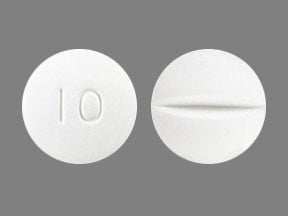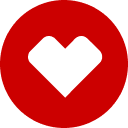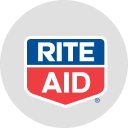
Glucotrol Coupons & Discount Card – Guaranteed Prices from $2.57
glipizide
My prescription
Edit
10MG, Glipizide (30 Tablets)
Select pharmacy

CVS
$19.23
COUPON PRICE
Walgreens
$2.57
COUPON PRICE
Rite Aid
$4.87
COUPON PRICE
Albertsons
$9.61
COUPON PRICEGlucotrol savings card
Show this card to your pharmacist
Walgreens
$2.57
BIN
ID
PCN
GRP
019876
LHB4EC5BE0
CHIPPO
LHX
Powered by
Related sulfonylureas prescriptions
More prescriptions for diabetes type 2
Related sulfonylureas prescriptions
More prescriptions for diabetes type 2
Glucotrol dosage forms
| Dosage | Quantity | Price from | Per unit |
|---|---|---|---|
| 10MG | 30 Tablets | $2.57 | $0.09 |
Glucotrol Warnings
The following safety information outlines important warnings associated with the use of this medication. It is crucial to review these details and discuss any concerns with your healthcare provider.
Low Blood Sugar Levels: This medication may cause dangerously low blood sugar levels, especially if combined with other glucose-lowering drugs like insulin, or if taken without food. You may need to monitor your blood sugar more frequently when starting treatment. Be aware of symptoms such as shakiness, anxiety, rapid heartbeat, excessive sweating, chills, confusion, and severe hunger. Factors increasing this risk include skipping meals, irregular eating schedules, alcohol consumption, intense physical activity, other medications that lower blood sugar, advanced age, and kidney or liver issues.
Risk of Hemolytic Anemia: Individuals with low levels of glucose-6-phosphate dehydrogenase (G6PD) may experience decreased red blood cell counts, known as hemolytic anemia. If you have a genetic predisposition to this condition, your healthcare provider may recommend an alternative treatment. Symptoms to watch for include weakness, fatigue, and dizziness.
Potential Heart Problems: There is a possible link between sulfonylureas and increased risk of heart-related fatalities, as suggested by studies on similar medications. Report any signs of a heart attack, such as chest pain, sweating, nausea, or dizziness, or symptoms of heart failure like difficulty breathing, fatigue, swelling, or sudden weight gain, to your provider immediately. Hospitalization and discontinuation of the medication might be necessary.
Risk with Stomach Problems (Extended-Release Tablets): The extended-release form of this medication has a coating that does not dissolve, posing a risk for those with gastrointestinal issues, such as strictures, who may struggle to pass this coating. If you have these conditions, avoid using extended-release tablets.
Contraindications: Do not use this medication if you have any of the following conditions, as it may lead to serious health complications:
- Allergy to sulfonamide medications
- Type 1 diabetes
- Diabetic ketoacidosis
For any of these conditions or if you suspect an overdose, seek immediate medical attention and consult your healthcare provider without delay.
Glucotrol Side Effects
When taking this medication, you may experience some common side effects like nausea, vomiting, diarrhea, constipation, upset stomach, headache, and weight gain. These are generally mild and should not cause alarm. However, if they persist or worsen, consult your healthcare provider. Dizziness, nervousness, tremors, and passing gas are also possible and typically not concerning unless they become bothersome.
Be aware of more serious side effects that require prompt medical attention. These include signs of infection such as persistent sore throat or fever, easy bleeding or bruising, symptoms of liver issues like stomach pain, yellowing of the skin or eyes, and dark urine. Additionally, report any unusual tiredness, sudden weight gain, mental changes, swelling of hands or feet, and seizures to your doctor immediately.
Low blood sugar, or hypoglycemia, is a potential side effect characterized by sudden sweating, shaking, rapid heartbeat, hunger, blurred vision, dizziness, or tingling sensations. To manage this, keep glucose tablets or a quick source of sugar handy, such as candies or fruit juice. Conversely, symptoms of high blood sugar include increased thirst and urination, which should also be addressed with your healthcare provider, as adjustments to your treatment may be needed.
Allergic reactions are rare but serious. Seek immediate medical help if you experience a rash, severe itching or swelling, especially of the face, tongue, or throat, along with dizziness or trouble breathing. Always inform your healthcare provider about any side effects you encounter, as this list may not cover all potential reactions.
Glucotrol Interactions
Before starting, stopping, or changing any medication, it's important to discuss with your doctor or pharmacist how it may impact your blood sugar levels. Regular blood sugar monitoring is crucial, and any symptoms of high or low blood sugar should be reported to your doctor immediately. Adjustments to your diabetes medication, exercise routine, or diet may be necessary.
Certain medications, such as beta-blockers like metoprolol, propranolol, and glaucoma eye drops containing timolol, can interfere with your ability to recognize the usual rapid or pounding heartbeat that signals low blood sugar (hypoglycemia). However, other symptoms like dizziness, hunger, or sweating are not affected by these drugs.
When taking Glipizide, it's essential to inform your doctor and pharmacist about any other medications or supplements you are using, including prescription and over-the-counter drugs, vitamins, and herbal supplements. Some medications, such as Acarbose, Aspirin, certain antibiotics like Ciprofloxacin, and diabetes-related medications like Sitagliptin, can interact with Glipizide. These interactions might necessitate dosage adjustments or changes in how often you take your medications.
Additionally, combining Glipizide with certain other drugs, such as beta-blockers like Atenolol or Metoprolol, as well as supplements like Bitter Melon or Fenugreek, may increase the risk of side effects. In such cases, your healthcare provider may modify the dosage or frequency of these medications to ensure optimal treatment outcomes.
Does glucotrol cause weight gain?
Glucotrol (glipizide) can potentially cause weight gain in some individuals. This is because it stimulates the pancreas to release insulin, which can lead to increased appetite and potential weight gain. However, the effect on weight can vary from person to person. It is important for patients to discuss any concerns about weight changes with their healthcare provider.
What is glucotrol used to treat?
Glucotrol is used to treat type 2 diabetes. It helps control blood sugar levels by stimulating the release of insulin from the pancreas.
Is GLUCOTROL the same as metformin?
Glucotrol and metformin are not the same. Glucotrol is the brand name for glipizide, which is a sulfonylurea used to increase insulin production in the pancreas. Metformin, on the other hand, is a biguanide that works by decreasing glucose production in the liver and improving insulin sensitivity. Both are used to manage type 2 diabetes but have different mechanisms of action.
How can I avoid weight gain on glipizide?
To help avoid weight gain while taking glipizide, one can focus on maintaining a balanced diet and engaging in regular physical activity. Monitoring caloric intake and choosing nutrient-dense foods can be beneficial. Additionally, staying hydrated and getting adequate sleep can support overall health. It is important to follow the healthcare provider's advice and attend regular check-ups to monitor blood sugar levels and adjust the treatment plan as needed.
Why would a doctor prescribe glipizide?
A doctor would prescribe glipizide to help manage blood sugar levels in individuals with type 2 diabetes. It works by stimulating the pancreas to release more insulin, which helps lower blood sugar levels. This medication is typically part of a comprehensive treatment plan that includes diet and exercise.
